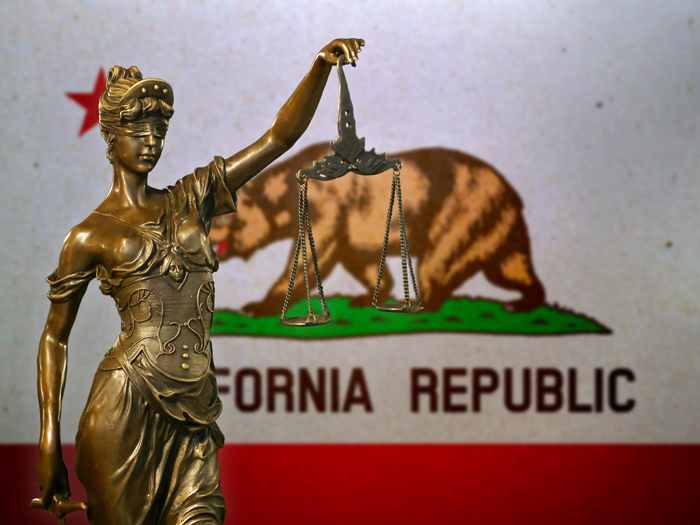14 Bills from California Lawmakers That Workers’ Comp Professionals Should Watch in 2020

As the Schoolhouse Rock song goes, “I’m just a bill, yes I’m only a bill … But I know I’ll be a law someday.”
While proposed pieces of legislation won’t have any immediate effects on workers’ compensation, new bills could hold a clue about what future rules and regulations will govern the industry.
This ability to use bills to glimpse the future is especially true of California’s legislature, which often serves as a bellwether for where the rest of the country is headed.
California was the first state to tackle gig economy employers, like Uber and Lyft, over the definition of an employee vs. an independent contractor. They were the first state to adopt data privacy protections that could effect the health care and workers’ comp industries and they’re at the forefront of presumptions for first responders.
With the February 21 deadline for introducing bills into the California legislature having just passed, here’s a look at the bills the Golden State will be debating this year.
Workers’ Comp and Safety
SB 924
This bill serves as a placeholder bill to amend how Labor Code 4610 deals with utilization review.
Under existing law, workers’ comp programs contract with an outside, independent research organization to evaluate the impact of the provision of medical treatment within the first 30 days after a claim is filed for claims filed between January 2017 and January 2019 and reports must be filed with administrative director, the Senate Committee on Labor and Industrial Relations, and the Assembly Committee on Insurance before January 1, 2020.
This bill would require the evaluation to cover a claim filed on or after January 1, 2017 and before January 1, 2021 and would extend the deadline to submit the report to January 1, 2022.
In the past, legal action in California regarding utilization review has been viewed as setting the stage for state and national action.
Takeaway: In 2017, California’s Supreme Court reversed a lower court’s decision on Kirk King v. CompPartners Inc. et al. that would have disrupted the state’s workers’ compensation medical treatment approval process and exposed utilization review doctors to medical malpractice liability. At the time attorneys said, “the entire workers’ compensation community should take notice.”
SB 1047

If this bill passes, California’s PTSD protections for firefighters will expand to include firefighting members of the State Department of State Hospitals, the State Department of Developmental Services, and the Military Department.
Certain peace officers will also be covered if the bill passes, including security officers of the Department of Justice who perform assigned duties as security officers and the officers of state hospitals that fall under the jurisdiction of the State Department of State Hospitals or the State Department of Developmental Services, among others.
Takeaway: Since coverage for PTSD has gained traction in many states in recent years, workers’ comp professionals should keep their eyes on ever-changing legislation.
SB 1103
Civil penalties for violating the Occupational Safety and Health Standards Board’s standards get attention in this bill.
It proposes increasing penalties applicable to violations of the Occupational Safety and Health Standards Board’s standards and special orders regulating the use of carcinogens and includes a civil penalty for repeated serious violations to not less than $15,000.
Takeaway: Employers are liable for exposing workers to carcinogens, and they may have to pay hefty fines. Even if the exposure was unintentional, presumptions for first responders are extending to certain types of cancers, especially those that may have been contracted during 9/11.
AB 2294
This is a placeholder bill for more substantive legislation regarding misleading workers’ compensation advertisements.
The legislative findings associated with this bill found there are a number of allegations of companies purporting to offer network fee discounts. There have also been advertisements that allegedly focus on the shortcomings of independent bill review and a number of other issues with the structure of medical provider networks.
The proposed bill would require the administrative director prevent potentially misleading advertisements about industrial injuries, illnesses or workers’ compensation from being published.
Takeaway: California might crack down on misleading advertisements. If other states follow, it could help prevent the spread of disinformation on workers’ comp and cut back fraud.
AB 2537
Health care workers could be affected by this bill. It would require employers to maintain an illness and injury protection program for hospital staff and personnel who provide direct care to patients suffering an opioid overdose.
This bill would also require the Division of Occupational Safety and Health to post a report annually on its website any information regarding opioid-exposure incidents at hospitals.
Takeaway: As the opioid epidemic rages on, states will look for new ways to make sure exposed workers are protected.
AB 2665
This bill expands a law that provides presumptions for skin cancer that develops in active lifeguards.
If this bill becomes law, it will expand the scope of those provisions to certain peace officers of the Department of Fish and Wildlife and the Department of Parks and Recreation.
Takeaway: Presumptions are expanding for certain employees. It’s important to keep track of where these trends are headed.
Labor and Employment
AB5 amendments
As Assembly Bill 5 (AB5) becomes California’s law of the land, legislators are locked in a battle over proposed amendments to the legislation, and debates over which professions should be exempt from it still rage on.
So far, Democrats have proposed three different bills seeking to amend AB5 and Republicans have presented nearly 30 bills on the subject. Many of them are exemptions for professions ranging from musicians to professional foresters.
Notably, Republicans are trying to exempt transportation network companies like Uber and Lyft — the very companies the bill was designed to regulate — from AB5’s signature ABC test.
Takeaway: Legislating the gig economy is going to be more difficult than it first appeared. Workers’ comp professionals in states considering similar legislation should take note.
SB 1039
In the war over legislating the gig economy, this bill creates “The Independent Worker Rights Act of 2020,” which could pave the way for creating a third class of worker.
From the bill: “It has become increasingly obvious that a binary system for classifying workers as either independent contractors or employees is outdated and in apposite of the current reality of the labor market and work opportunities presented in the gig economy and the desire of workers seeking flexible working conditions.”
The bill goes on to say that it is the legislature’s intention to “enhance the efficiency of the labor market by extending many of the legal benefits and protections found in employment relationships to independent workers.”
Takeaway: A third class of worker could mean big changes for workers’ comp. This bill is definitely one to watch.
Privacy and Technology
AB 713
After health care and workers’ compensation professionals decried the California Consumer Privacy Act (CCPA) for its unintended effects on the industry, legislators knew the law would be in need of amendments.
This bill seeks to address those concerns for health care research and operations that are experiencing difficulty because of the CCPA.
It is also an urgency measure, requiring a two-thirds vote from the legislature to pass.
Takeaway: As with the gig economy, privacy legislation may take a couple of tries before legislators get it right. Other states can learn from California’s mistakes.
AB 2269
This bill exists to enact the Automated Decision Systems Accountability Act of 2020.
Under this bill, businesses in California would have to provide a person, including an insurer or third party administrator, with a program or device that uses an automated decision system (ADS) to take affirmative steps to ensure that there are processes in place to continually test for biases during the development and usage of the ADS.
Takeaway: While this bill regulates the developers of artificial intelligence and machine learning systems, and not the end users, insurers will still feel like this bill amounts to dual regulation.
For example, even if an AI product meets the requirements of this regulatory structure, the Department of Insurance could not accept these criteria as comprehensive for the purposes of rate-making, underwriting or claims handling examinations.
AB 2414

This bill amends the Business & Professions Code to require the operators of apps to provide a clear notice to consumers of when, how and why their visual, audio or geolocation information will be collected used, and shared.
The bill would require the operator of a mobile application to obtain consent before collecting or using a user’s information upon installation of the app and to obtain separate consent before disclosing that information.
Takeaway: As apps and wearable technologies emerge in the workplace, it’s important that workers’ comp professionals stay up-to-date on privacy laws.
AB 2604
Health care workers providing direct-to-patient care will be able to override the judgement of health care information technologies in order to act in their patient’s best interest if this bill becomes law.
The bill defines “technology” as any scientific hardware or software, including algorithms derived from the use of health care related data, used to achieve a medical or nursing care objective at a health care facility. By this definition, it seems workers’ comp care providers could be included.
Takeaway: While new technologies have wonderful potential, they can’t replace a provider’s intuition in every circumstance.
Lingering 2019 Legislation
SB 731
This bill seeks to eliminate discrimination in the workers’ comp system by prohibiting the consideration of race, religious creed, color, national origin, age, gender, marital status, sex, sexual identity, sexual orientation or genetic characteristics in determining the percentage of a permanent disability caused by other factors.
It was sponsored by the California Applicant Attorneys Association (CAAA).
Takeaway: Just as in other aspects of life, California is trying to ensure discrimination is not tolerated in workers’ comp. Other states may follow.
AB 1007
Another bill sponsored by CAAA, this piece of legislation’s original language would have effectively gutted all medical treatment reforms enacted since 2003.
The Assembly Insurance Committee amended the bill, and now it has substantive language regarding the availability of Labor Code 5814 penalties when the administrative director approves an independent medical review determination overturning a utilization review decision.
The bill is currently in the Senate Labor, Public Employment and Retirement Committee for more revisions, but could make it to Governor Newsom’s desk in 2020.
Takeaway: Bills need to take into account past legislation or be subject to extensive revisions. &










